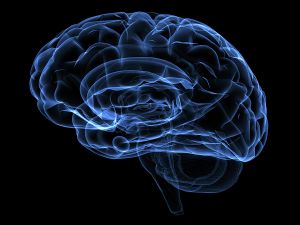March 25, 2025
by Patricia Tomasi

A new study published in the Journal of Child Development looked at Indigenous perspectives on the child–caregiver bond from a northwest tribal community. “Our study is about uplifting the experiences, perspectives and knowledges regarding parenting young children that are held by members of a Northwest tribal community,” Sara F. Waters told us. “In particular, we wanted to center Indigenous knowledge of and approaches to the child-caregiver bond.”
[More]
March 11, 2025
by Patricia Tomasi

A new study published in the Journal of Child Development looked at mother–child collaboration in an Indigenous community. “Changes in family life related to globalization may include reduction in the collaborativeness observed in many Indigenous American communities,” study author Barbara Rogoff told us. “The present study examined longitudinal changes and continuities in collaboration in a Guatemalan Maya community experiencing rapid globalization.”
[More]
November 12, 2024
by Patricia Tomasi

A new study published in the Journal of Nature looked at structural and functional mechanisms of learning and memory. “NMDA receptors are essential for the fundamental processes,” study author Hiro Furukawa told us. “Recent clinical studies have revealed that in autoimmune encephalitis, antibodies targeting NMDA receptors disrupt normal neuronal function, resulting in psychotic symptoms.”
[More]
August 13, 2024
by Patricia Tomasi

A new study published in the Journal of Positive Psychology looked at perceived gratitude in family relationships. “This study examined the unique effects of perceived gratitude from spouses/romantic partners,” study author Allen W. Barton told us, “as well as from children for outcomes in areas of couple, parenting, and individual well-being.” Barton is an assistant professor and extension specialist at the University of Illinois.
[More]
July 9, 2024
by Patricia Tomasi

A new study published in Child Development looked at how mothers speak less to infants during detected real-world phone use. “Our study looks at how phone use affects parental speech around their children,” study author Kaya de Barbara told us. “We expected that when parents use their phones they would speak less around their kids.”
[More]
March 19, 2024
by Patricia Tomasi

A new study published in Cell and Tissue Research looked at the identification of vagal afferent nerve endings in the mouse colon and their spatial relationship with enterochromaffin cells. “The purpose of this study was to identify for the first time, the sensory nerve endings of the vagus nerve in the inner lining (called the mucosa) of the colon,” study author Nick Spencer told us.
[More]
September 12, 2023
by Patricia Tomasi

A new study published in the Journal of Child Development looked at infection detection in faces and children's development of pathogen avoidance. “We were interested in understanding whether children ages four to nine years old can avoid and recognize sick faces,” study author Tiffany S. Leung told us. “Previous studies have reported that adults can use faces to recognize when someone is sick and make judgements about whether to approach or avoid them."
[More]
August 8, 2023
by Patricia Tomasi

A new study published in the Lancet looked at the effects of COVID-19 on cognitive performance in a community-based cohort. “Many people report ongoing symptoms after COVID-19, including brain fog and problems with concentration, memory and attention,” study author Dr. Rose Penfold told us. “Previous research has shown that some of these people perform worse on cognitive testing. However, most of this research has been done in hospitalized patients who had more severe infection.”
[More]
September 27, 2022
by Patricia Tomasi

A new study published in Psychiatry Research looked at whether perceived stress can be linked to enhanced cognitive functioning and a reduced risk for psychopathology. “Our study tested whether low to moderate levels of perceived stress are associated with benefits in cognitive functions and mental health,” study author Assaf Oshri told us. “We relied on the Hormesis model, which is from the field of toxicology- assuming that not all stress is bad for the organism and that there is a threshold of stress from which stress is bad for you.”
[More]
May 31, 2022
by Patricia Tomasi

A new study published in the Journal of Child Psychiatry and Human Development looked at the association between time spent playing and child mental health. “In January 2021, we published a paper explaining why we thought adventurous play might help to prevent anxiety in children,” study author Helen F. Dodd told us. “We explained how, when children play adventurously, they have opportunities to learn about uncertainty, coping and physiological arousal (heart beating fast, butterflies in your tummy etc.). These learning opportunities should target some of the risk factors that we know exist for child anxiety.”
[More]